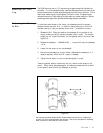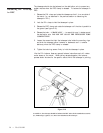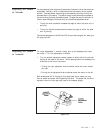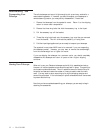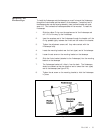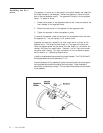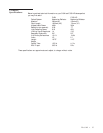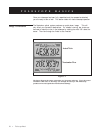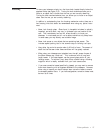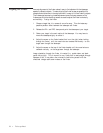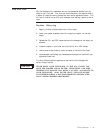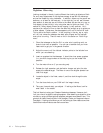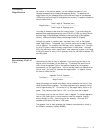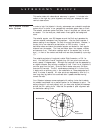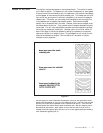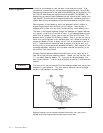
Telescope Basics • 27
To focus your telescope, simply turn the focus knob located directly below the
eyepiece holder (see figure 2-13). Turning the knob clockwise allows you to
focus on an object that is farther than the one you are currently observing.
Turning the knob counterclockwise from you allows you to focus on an object
closer than the one you are currently observing.
In addition to understanding how the focusing mechanism works, there are a
few focusing hints that should be remembered when using any optical instru-
ment.
• Never look through glass. Glass found in household windows is optically
imperfect, and as a result, may vary in thickness from one location to the
next. This inconsistency can and will affect the ability to focus your
telescope. In most cases you will not be able to achieve a truly sharp focus.
In some cases, you may actually see a double image.
• Never look across or over objects that are producing heat waves. This
includes asphalt parking lots on hot summer days or building roof tops.
• Hazy skies, fog and mist can also make it difficult to focus. The amount of
detail that can be seen under these conditions will be greatly reduced.
• When using your telescope as a telephoto lens, the split screen focuser of
the 35mm camera may “black out.” This is common with all long focal
length lenses. If this does happen, use the ground glass portion of your
focusing screen. To achieve a very sharp focus, consider using a focusing
magnifier which is readily available from your local camera store.
• If you wear corrective lenses (specifically glasses), you may want to remove
them when observing with an eyepiece attached to the telescope. However,
when using a camera you should always wear corrective lenses to ensure
the sharpest possible focus. If you have astigmatism, corrective lenses must
be worn at all times.
Focusing



